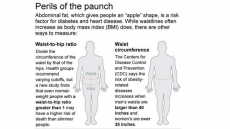CHICAGO — Two new studies bolster evidence that feeding babies peanuts or other allergy-inducing foods is more likely to protect them than to cause problems.
One study, a follow-up to landmark research published last year, suggests that the early prevention strategy leads to persistent, long-lasting results in children at risk for food allergies. It found that allergy protection lasted at least through age 5 and didn't wane even when kids stopped eating peanut-containing foods for a year.
That means at-risk kids who don't want to eat peanut butter on a weekly basis can take safely take a break, at least for a year.
The second new study suggests that the early strategy could also work with eggs, another food that can cause allergies in young children. It found that allergies to peanuts and eggs were less common in young children who started eating those foods at 3 months of age than in kids who as infants received only breast milk.
The New England Journal of Medicine published both new studies online Friday, coinciding with their presentation at a medical meeting in Los Angeles.
Food allergies are common, potentially serious and sometimes deadly. They're becoming more prevalent in children in many countries, affecting up to 8 per cent of kids under age 3. About 2 per cent of U.S. kids have peanut allergies.
The results from last year's study prompted a sea change in experts' approach to preventing these allergies. It was the first "to show that early introduction of peanut can prevent the development of allergy to it," Dr. Anthony Fauci, director of the National Institute of Allergy and Infectious Diseases, said in a statement.
It also led to new draft guidance issued Friday by a panel convened by Fauci's agency. The recommendations include giving at-risk kids peanut-containing food as early as 4- to 6-months of age. Infants at risk are those with severe skin rashes or egg allergies; allergy tests are recommended beforehand.
The agency paid for last year's study and follow-up, and will issue final guidelines after a 45-day comment period. The draft guidance echoes advice issued last year by the American Academy of Pediatrics and other medical groups in response to the ground-breaking study.
That study involved more than 600 at-risk British infants. By age 5, peanut allergies were much less common in children who had started eating peanut-based foods before age 1, usually peanut butter or a peanut-based snack, than among children who'd been told to abstain.

The follow-up involved most of those children. After a year off, an additional three kids in both groups tested positive for peanut allergies. The allergies remained much less common in the early peanut eaters — affecting just under 5 per cent of those kids versus almost 19 per cent of the others.
The new results suggest that early introduction of allergy-inducing foods results in "true tolerance" in at-risk kids, said Dr. Stacy Dorris, an allergist at Vanderbilt University Medical Center. She was not involved in the research.
The second study involved 1,300 study breast-fed British children randomly assigned to get several types of allergy-inducing foods or just breast milk.
The strongest results were with peanut-based food and eggs but there was one hitch. About 60 per cent of the early eaters didn't stick to the program. Some may have had immature swallowing skills; some doctors don't recommend starting solid foods until around 4 months of age. But it's possible some parents stopped giving solid foods because they noticed allergy-like symptoms, which may have included false alarms, said Dr. Gideon Lack, a King's College London researcher who led all three studies.
The results suggest feeding these foods to at-risk infants is safe, but often not feasible in infants so young, said Dr. Gary Wong, a Hong Kong pediatrician. He wrote an editorial published online with the new studies.
Still, Wong said the new studies confirm that the old approach to preventing food allergies — avoiding certain foods early in life — is probably obsolete.
"Evidence is really building up. It appears early introduction would be better off than avoidance," said Wong, who is also an associate editor at the journal.





